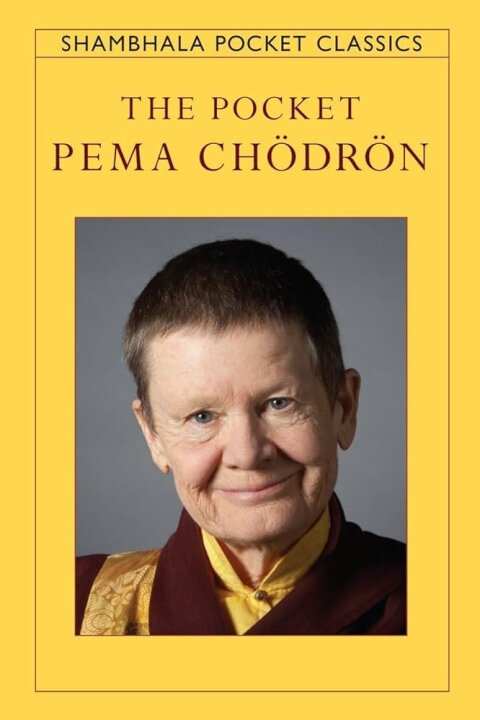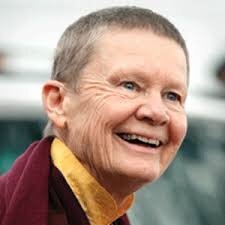Pema Chodron on Loving-kindness
A short "sermon" on maitri (loving-kindness) by Pema Chodron..
When people start to meditate or to work with any kind of spiritual discipline, they often think that somehow they're going to improve, which is a sort of subtle aggression against who they really are. It's a bit like saying, "If I jog, I'll be a much better person." "If I could only get a nicer house, I'd be a better person." "If I could meditate and calm down, I'd be a better person." Or the scenario may be that they find fault with others; they might say, "If it weren't for my husband, I'd have a perfect marriage." "If it weren't for the fact that my boss and I don't get on, my job would be just great." And "If it weren't for my mind, my meditation would be excellent."
But loving-kindness - "maitri" - towards ourselves doesn't mean getting rid of anything. "Maitri" means we can still be crazy after all these years. We can still be angry after all these years. We can still be timid or jealous or full of feelings of unworthiness. The point is not to try to change ourselves. Meditation practice is not about trying to throw ourselves away and become something better. It's about befriending who we are already. The ground of practice is you or me or whoever we are right now, just as we are. That's the ground, that's what we study, that's what we come to know with tremendous curiosity and interest.
Sometimes among Buddhists the word "ego" is used in a derogatory sense, with a different connotation than the Freudian term. As Buddhists, we might say, "Well, then, we're supposed to get rid of it, right? Then there'd be no problem." On the contrary, the idea isn't to get rid of the ego but actually to begin to take an interest in ourselves, to investigate and be inquisitive about ourselves.
We can still be crazy after all these years........😀
When people start to meditate or to work with any kind of spiritual discipline, they often think that somehow they're going to improve, which is a sort of subtle aggression against who they really are. It's a bit like saying, "If I jog, I'll be a much better person." "If I could only get a nicer house, I'd be a better person." "If I could meditate and calm down, I'd be a better person." Or the scenario may be that they find fault with others; they might say, "If it weren't for my husband, I'd have a perfect marriage." "If it weren't for the fact that my boss and I don't get on, my job would be just great." And "If it weren't for my mind, my meditation would be excellent."
But loving-kindness - "maitri" - towards ourselves doesn't mean getting rid of anything. "Maitri" means we can still be crazy after all these years. We can still be angry after all these years. We can still be timid or jealous or full of feelings of unworthiness. The point is not to try to change ourselves. Meditation practice is not about trying to throw ourselves away and become something better. It's about befriending who we are already. The ground of practice is you or me or whoever we are right now, just as we are. That's the ground, that's what we study, that's what we come to know with tremendous curiosity and interest.
Sometimes among Buddhists the word "ego" is used in a derogatory sense, with a different connotation than the Freudian term. As Buddhists, we might say, "Well, then, we're supposed to get rid of it, right? Then there'd be no problem." On the contrary, the idea isn't to get rid of the ego but actually to begin to take an interest in ourselves, to investigate and be inquisitive about ourselves.
We can still be crazy after all these years........😀





